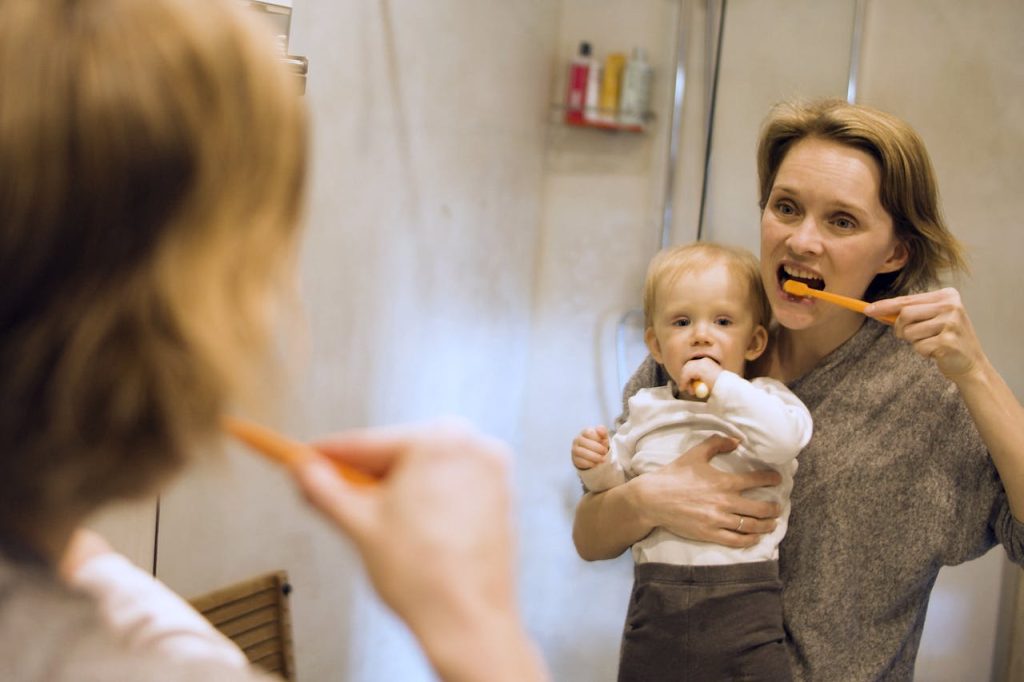When a new baby arrives, parents are very excited about their newborn. They are eager to see how the baby looks physically. As parents care for the baby and observe its movements, many questions arise. New parents often wonder about baby teeth. A common question is, Do baby teeth have roots? The answer is yes—baby teeth do have roots. However, the function and role of these roots are slightly different from those of adult teeth. In this article, we will discuss these topics in detail. Our discussion will focus on the structure of baby teeth and answer the question, Do baby teeth have roots?
The structure of the roots of baby teeth
Before learning about your baby’s teeth, you need to understand the structure of baby teeth. As it affects their proper growth and health. The roots of baby teeth are primarily hidden under the gums and hold the teeth firmly in place. These roots play an important role in maintaining the health and stability of the teeth.
Therefore, it is essential to take care of your baby’s teeth to ensure they develop strong and healthy. Now, let’s learn more about the structure of baby teeth.

1.Root Structure
The main components of the root structure of a baby tooth are dentin and cementum. These components provide a strong foundation for the tooth. The roots of baby teeth are smaller and relatively thinner than those of adult teeth. They help hold the baby tooth in place within the gums and provide protection for the tooth.
2.Decay Process
When a child’s permanent teeth begin to grow, the roots of the baby teeth gradually start to decay. This process, called resorption, is completely natural and nothing to worry about. It creates space for the new teeth to come in. This process happens to all children, so there is no need for concern.
Do baby teeth have roots? Answer the question in more detail
All parts of a child’s body work together and play important roles. The roots of a child’s teeth are crucial for the development of teeth and the structure of the mouth. If a child’s mouth is not well-formed, one possible reason could be the alignment of the tooth crest. Do you know what is meant by a child’s primary teeth? The baby’s milk teeth, known as primary teeth, complete their formation between 6 months and 3 years of age. These milk teeth support the development of the mouth’s structure and help permanent teeth grow in the correct position. Did you understand this so far? Hopefully, you now realize the importance of the roots of a child’s teeth. Stay tuned, as other topics will be discussed in depth.
What is the Function of a Tooth Root?
What is the function of a tooth root? Before answering this question, you need to understand what the root of a baby tooth is. The root of a baby tooth is the part located inside the gums that holds the tooth firmly to the gum bone. The main components of the tooth root are dentin and cementum. Inside the root of these baby teeth is the dental pulp, which contains blood vessels and nerves.
The primary function of the root is to hold the tooth securely in place, withstand the pressure of chewing, and provide stability. It also supplies nutrition to the tooth and maintains sensitivity. Additionally, the root plays a vital role in the normal development of the baby’s mouth, aids in chewing food, and helps absorb nutrients. Therefore, you must not overlook the importance of caring for your baby’s teeth.

Do baby teeth have roots? Care of baby teeth and roots
Many parents are not serious about taking care of their child’s baby teeth and roots. Would you say this is correct? The answer is no, because caring for baby teeth and roots is very important. Keeping the roots of baby teeth healthy is essential for the overall oral health of the child. Below are some tips you can follow to take proper care of them.
1.Regular cleaning
As soon as your baby’s first tooth erupts, you should start brushing it with a soft toothbrush. Using a hard toothbrush can hurt your baby. Here’s a tip: you can brush your baby’s teeth while they are sleeping.
2.Proper eating habits
It is a parent’s responsibility to establish proper eating habits for their child. Provide your child with foods that are low in sugar and prioritize water as their main drink. By choosing these options, you can help keep your child’s teeth and gums healthy.
3.Dental checkup
Our common sense doesn’t always provide all the answers. That’s why it’s important to consult a doctor when needed. Regular dental check-ups for your child are essential. Make sure to visit your child’s dentist every six months for routine dental care.
4.Should Loose Tooth Be Pulled?
You should wait for the loose tooth to fall out on its own. Forcing it out can damage the gums. Always exercise caution in this regard.
The relationship between the roots of baby teeth and permanent teeth
Do baby teeth have roots? Hopefully, you’ve gained a lot of useful information on this topic. You should also understand the relationship between the roots of baby teeth and permanent teeth. When a permanent tooth begins to form, it puts pressure on the roots of the baby teeth. As a result, the roots of the baby teeth gradually decay, causing the tooth to fall out naturally. This makes way for the permanent teeth to emerge. This process is completely natural and plays a crucial role in the baby’s development. Why Are Roots Important for Baby Teeth? Understanding this topic will help you see how vital roots are for the overall development of a baby’s teeth.
Anatomy of baby teeth
The structure of a baby’s teeth is slightly different from that of an adult’s. Babies have 20 baby teeth, and their roots are smaller and softer than permanent teeth. A baby’s teeth include the structure, growth, and function of the baby teeth. These ensure proper tooth development.
A baby’s tooth enamel is formed at birth. It is the first to erupt the baby teeth, followed by the permanent teeth. Teeth generally have three parts: the crown, the neck, and the root. Each part has a specific function. The crown is covered with enamel, which protects the tooth. The root connects the tooth to the gum bone. The dentin and pulp contain blood vessels and nerves, which provide nourishment and sensation to the tooth.
To ensure proper growth and good oral health, it is essential to keep your baby’s teeth clean regularly.
Why Does My Child Have Two Rows of Teeth?
There are a few reasons why your child may have a double row of teeth. Sometimes, a child’s permanent teeth begin to erupt before the baby teeth fall out, causing a “shark teeth” or double row of teeth. This is usually temporary and resolves without treatment. However, you should seek the advice of a dentist if necessary.

What to Do Once a Baby Tooth Falls Out
A common question many parents ask is: What should I do once a baby tooth falls out? When a baby tooth falls out, it’s important to care for the gums. You should gently wash the gums with warm water and avoid letting the child chew hard foods. Chewing hard foods too soon can damage the gums and affect the healing process. It’s important to pay attention to this.
All about the article
It is important for parents to understand the roots of their baby’s teeth. By knowing the correct answer to the question, Do baby teeth have roots? you can take better care of your baby’s teeth. A baby’s milk teeth form the foundation for their permanent teeth. Therefore, proper care of the roots is crucial. Learn more about baby teething, new teeth development, and the role of roots to ensure your child’s oral health.
How informative did you find this article? Share your valuable feedback in the comments. You can also share this article on your social media. Do you know someone who wants to learn about whether baby teeth have roots? If so, share this article with them!








